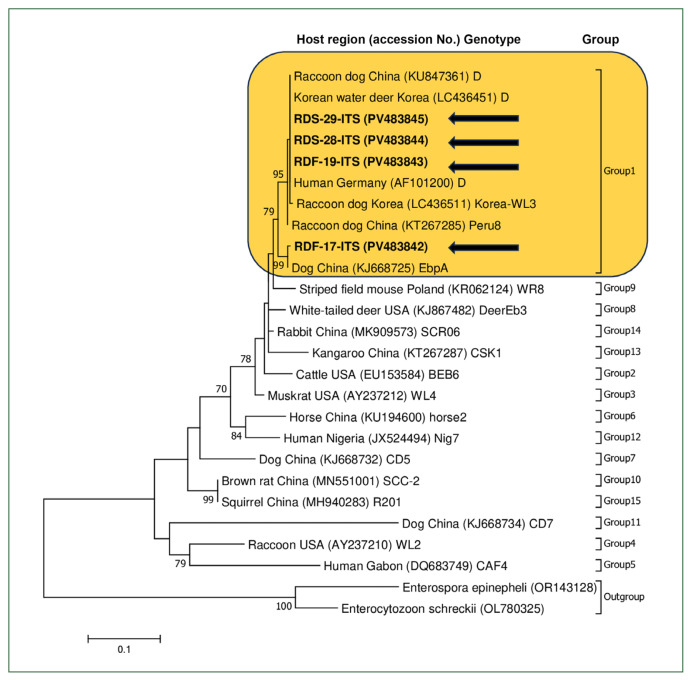Distribution and genotypes of Enterocytozoon bieneusi in raccoon dogs in Korea.
IF 1.3
0 PARASITOLOGY
引用次数: 0
Abstract
Enterocytozoon is a genus of microsporidian parasites, with Enterocytozoon bieneusi being a well-known species. It infects various mammalian hosts, including humans, and exhibits zoonotic potential. Out of the 97 fecal and intestinal samples collected from wild raccoon dogs in Korea, 12 (12.4%) tested positive for E. bieneusi via PCR, revealing 2 genotypes: genotype D and EbpA. Both genotypes were found to belong to the zoonotic Group 1. Notably, this study is the first to report the EbpA genotype in Korea. Although studies on E. bieneusi in raccoon dogs are relatively limited, the findings suggest potential public health concerns.

韩国貉双氏肠细胞虫的分布及基因型。
Enterocytozoon是微孢子虫寄生虫的一个属,其中bieneusenterocytozoon是一个众所周知的物种。它感染各种哺乳动物宿主,包括人类,并表现出人畜共患的潜力。在韩国收集的97只野生貉粪便和肠道样本中,通过PCR检测出12只(12.4%)阳性,显示出2种基因型:基因型D和EbpA。两种基因型均属于人畜共患病1群。值得一提的是,此次研究是国内首次报道EbpA基因型。尽管在貉身上进行的比氏肠杆菌研究相对有限,但研究结果表明可能存在公共卫生问题。
本文章由计算机程序翻译,如有差异,请以英文原文为准。
求助全文
约1分钟内获得全文
求助全文

 求助内容:
求助内容: 应助结果提醒方式:
应助结果提醒方式:


